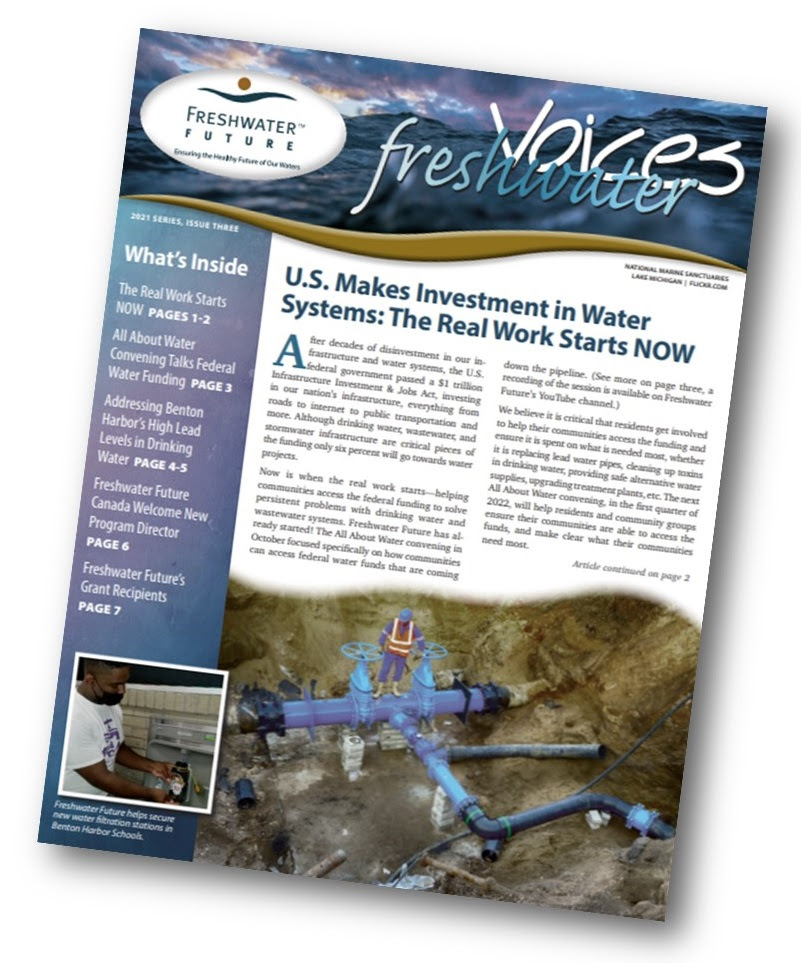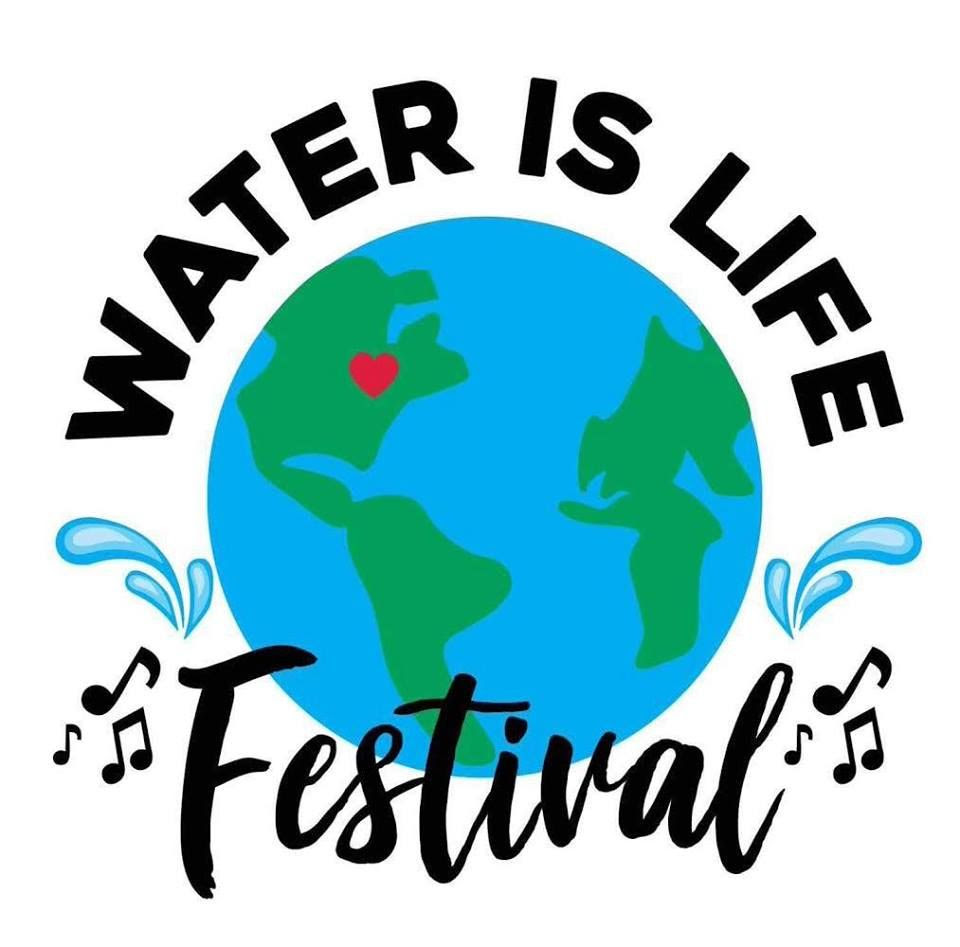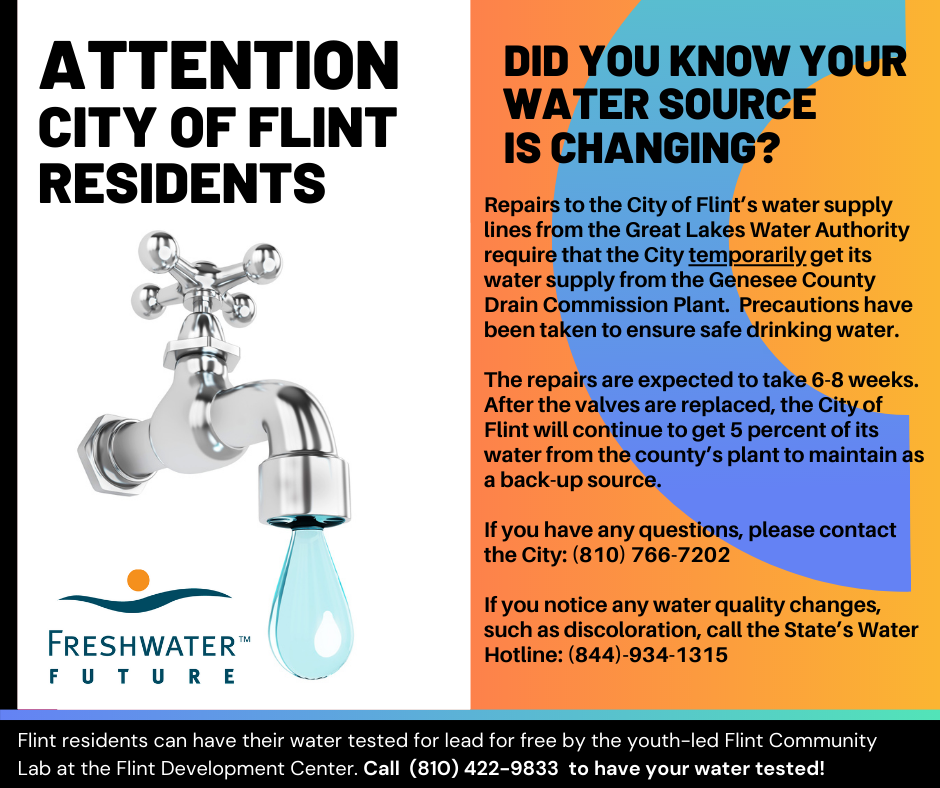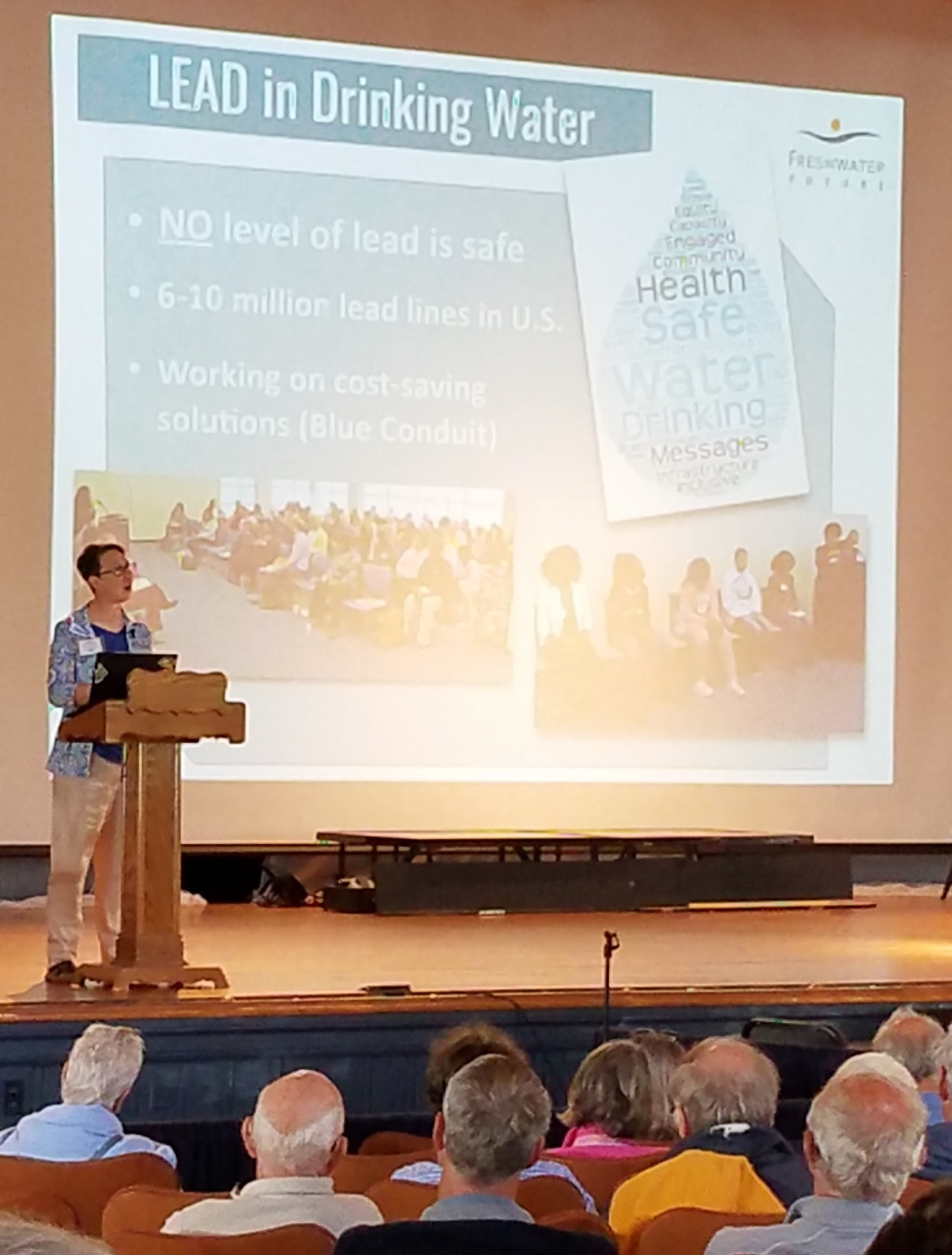Freshwater Future Weekly: March 4, 2022
THIS WEEK: Freshwater Heroes Honored on World Water Day, March 22–Register Today! + Study Looks at Climate Change Impacts to Great Lakes During Winter + Water Watchers Get Wellness and Organization Support + Drinking Water Contaminated near Canadian Forces Detachment Mountain View

Freshwater Heroes Honored on World Water Day, March 22–Register Today!
Join us to recognize our amazing Freshwater Hero award recipients at the Virtual Online Ceremony – Tuesday, March 22nd, 2022, 12-1pm (ET). The event coincides with World Water Day and will celebrate selected people, organizations, and communities throughout the Great Lakes Region who are committed to protecting our earth’s precious freshwater resources. This free event will inspire you and give you hope as we share stories of a few people, organizations, and communities making a difference. Register here.
Study Looks at Climate Change Impacts to Great Lakes During Winter
Climate change is impacting ice cover on the Great Lakes. Extreme early freezes, early thaws and extreme fluctuations in temperature are causing thinner average ice cover overall. Professor David Richardson of the Global Lake Ecological Observatory Network warns that “Less ice during the winter means warmer lakes during the summer”, which could lead to bigger algal blooms and the loss of fish species. A new cross border study with American and Canadian scientists will collect winter climate data on all five of the Great Lakes to provide a better understanding of the impacts of extreme fluctuations and more.
Water Watchers Get Wellness and Organization Support
As we approach the two-year anniversary of the pandemic, we are reminded of the importance of continuing healthy habits for wellness. Freshwater Future’s Water Watchers & Wellness Program provides a space for leaders and volunteers with community groups to practice wellness and stay up to date with insightful information for managing nonprofits. This is your last opportunity to join! The next session will focus on Getting & Managing Grants, (Thursday, March 24, 2022 at 11:30 am ET), Register Now.
Drinking Water Contaminated near Canadian Forces Detachment Mountain View
Toxic chemicals, benzene, per- and polyfluoroalkyl substances (PFAS) have been found in wells near the Canadian Forces Detachment Mountain View. Private wells around the Canadian Forces Detachment have tested for PFAS (called forever chemicals for their persistence) and benzene in amounts above the provincial guidelines but below federal guidelines. Firefighting foams are believed to be the source of the pollution. All affected properties are being provided bottled water until a long-term solution can be found.
Blog – Freshwater Future
https://freshwaterfuture.org/freshwater-weekly/freshwater-future-weekly-march-4-2022/

 A new website created for the Benton Harbor Community Water Council
A new website created for the Benton Harbor Community Water Council Freshwater Voices Newsletter – Latest Issue Now Available Online
Freshwater Voices Newsletter – Latest Issue Now Available Online The
The  Don’t Miss the All About Water November Session on Water Affordability!
Don’t Miss the All About Water November Session on Water Affordability!
 The most recent issue of our
The most recent issue of our 




 It takes energy, commitment, and stamina to be a leader of community based and grassroots organizations and this is additionally challenging during COVID-19. For over 25 years, Freshwater Future, through our consulting services, has helped leaders to run their organizations. This year we are conducting a special program to help our partners with self-care and nonprofit management including bookkeeping, financing, communications and so much more. Many organizations have indicated that the support from FWF is paramount during these challenging times in our nation’s history. Here are the testimonies of some of our partners
It takes energy, commitment, and stamina to be a leader of community based and grassroots organizations and this is additionally challenging during COVID-19. For over 25 years, Freshwater Future, through our consulting services, has helped leaders to run their organizations. This year we are conducting a special program to help our partners with self-care and nonprofit management including bookkeeping, financing, communications and so much more. Many organizations have indicated that the support from FWF is paramount during these challenging times in our nation’s history. Here are the testimonies of some of our partners